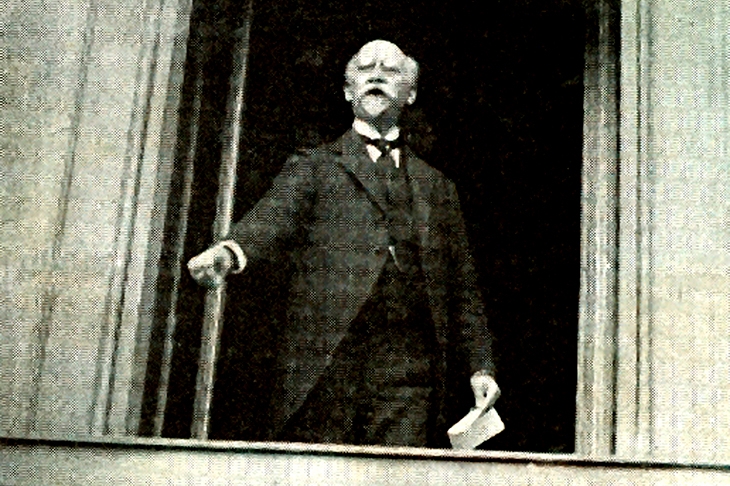Has it ever occurred to you that the Spanish flu pandemic of 1918 might have won us the war? Until I read November 1918 it hadn’t to me. Now I know that between May and June that year, as German forces moved to within artillery range of Paris, a million of Ludendorff’s troops, half-starved owing to the British blockade, went down with the virus. Meanwhile, the better nourished British army, regrouping for the battle of Amiens, had a mere 50,000 sick. On such things history can turn.
Splendidly researched, and with a striking new thesis, Robert Gerwarth’s book warns against assuming that the way things turned out was inevitable. The British often think of the Weimar Republic as being bound to fail from the start: that Germany had already set out on a fatally different path from that mapped out by Britain and America. In Germany, too, there is a persistent belief, certainly among the liberal left, that the rotten old moderates doomed Weimar by foiling the supposedly true revolution.
Gerwarth tells a different story, seeing Weimar not as a failed Anglo-Saxon democracy but as a heroic, and temporarily successful, attempt to buck the destiny of eastern Europe. In his view the ‘dreamland of the Armistice period between November 1918 and the early summer of 1919’ was the foundation by moderate, responsible politicians of the centre right and centre left of a genuine democracy which might have lasted.
The villains of the piece were the extremists on both sides who looked to the East.The communists were in direct contact with Lenin and Trotsky, who demanded a Bolshevik coup in Germany, while the irreconcilable Prussian militarists were fascinated by the success of the fanatical Red Army and, early on, even sent out secret feelers to Lenin with the view of standing together against the Treaty of Versailles (specifically to destroy the new, free Poland).
This book is full of surprises. It is widely assumed, for example, that the ordinary sailors of the imperial German navy ignited
a revolution when their officers, filled with shame at their inactivity after Jutland, tried to weigh anchor for a Wagnerian suicide battle with the Royal Navy. But this wasn’t the case. Gerwarth describes, for the first time in any book I’ve read on the subject, how the aim was not to steam into Valhalla, but carefully to manufacture local superiority for a decisive victory at a precisely planned spot off the Dutch coast. That’s the definition of real research.
But there is one glaring blind spot. Gerwarth repeatedly refers to Bismarck’s second German empire as ‘the German nation-state’, which is extremely dubious. No non-Prussian German nationalist before Bismarck would have accepted that the ‘nation-state’ could exclude eight million Austrian Germans but include three million Poles. Given his argument that we shouldn’t view what happened in the past as inevitable, it seems strange that he seems unquestioningly to accept the Prussian domination of Germany. While encouraging us to look at the Weimar Republic in the light of the eastern European politics which half surrounded it, he misses that Germany was only enmeshed in those politics because of Prussia, whose takeover of 1866-71 was no more inevitable than the Nazi takeover of 1933-4.
So should you buy this book? It’s fascinating, and the research ground-breaking, though be warned that there’s not much crowd-friendly shot-making. It’s more of a donnish slice of history, with extensive quotation and elucidation. But don’t be put off. This is a fascinating study, whose insights will stop you dead even if you thought, as I did, that you already knew this stuff.






Comments